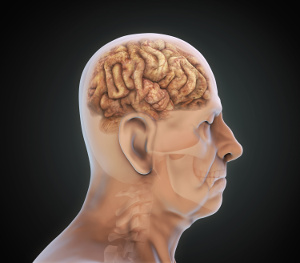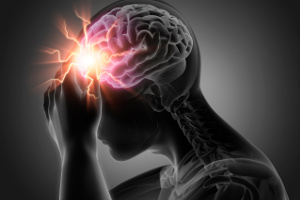afterLoad (456.03KB) (4.09ms)
afterInitialise (1.27MB) (58.9ms)
afterRoute (856.63KB) (20.72ms)
beforeRenderComponent com_content (35.35KB) (4.93ms)
Before Access::preloadComponents (all components) (68.65KB) (534μs)
After Access::preloadComponents (all components) (98.44KB) (4.91ms)
Before Access::getAssetRules (id:8 name:com_content) (1.13KB) (15μs)
After Access::getAssetRules (id:8 name:com_content) (7.05KB) (32μs)
afterRenderComponent com_content (1.22MB) (259ms)
afterDispatch (45.13KB) (2.71ms)
beforeRenderRawModule mod_articles_category (READ MORE...) (379.32KB) (13ms)
afterRenderRawModule mod_articles_category (READ MORE...) (84.63KB) (183ms)
beforeRenderRawModule mod_tags_popular (Search) (4.81KB) (24μs)
afterRenderRawModule mod_tags_popular (Search) (10.09KB) (60.01ms)
beforeRenderRawModule mod_custom (Remember to download Heart Healthy Seniors) (816B) (23μs)
afterRenderRawModule mod_custom (Remember to download Heart Healthy Seniors) (4.22KB) (1.24ms)
beforeRenderRawModule mod_custom (Get additionel and more detailed knowledge ) (752B) (20μs)
afterRenderRawModule mod_custom (Get additionel and more detailed knowledge ) (1.67KB) (34μs)
beforeRenderRawModule mod_custom (BOOST YOUR IMMUNE DEFENSE) (608B) (10μs)
afterRenderRawModule mod_custom (BOOST YOUR IMMUNE DEFENSE) (928B) (22μs)
beforeRenderRawModule mod_custom (Are you taking supplements) (736B) (8μs)
afterRenderRawModule mod_custom (Are you taking supplements) (1.03KB) (17μs)
beforeRenderRawModule mod_custom (Antiaging) (720B) (9μs)
afterRenderRawModule mod_custom (Antiaging) (1.02KB) (16μs)
beforeRenderRawModule mod_custom (Exercise) (720B) (8μs)
afterRenderRawModule mod_custom (Exercise) (1.02KB) (16μs)
beforeRenderRawModule mod_custom (Check this before you buy a Q10 product) (752B) (7μs)
afterRenderRawModule mod_custom (Check this before you buy a Q10 product) (944B) (17μs)
beforeRenderRawModule mod_custom (Chronic fatigue tied Alan to his bed but Q10 capsules saved him:) (260.6KB) (4.14ms)
afterRenderRawModule mod_custom (Chronic fatigue tied Alan to his bed but Q10 capsules saved him:) (960B) (40μs)
beforeRenderModule mod_custom (Chronic fatigue tied Alan to his bed but Q10 capsules saved him:) (768B) (4μs)
afterRenderModule mod_custom (Chronic fatigue tied Alan to his bed but Q10 capsules saved him:) (1.3KB) (49μs)
beforeRenderRawModule mod_custom (Cholesterol-lowering without side effects:) (368B) (11μs)
afterRenderRawModule mod_custom (Cholesterol-lowering without side effects:) (2.19KB) (22μs)
beforeRenderModule mod_custom (Cholesterol-lowering without side effects:) (752B) (2μs)
afterRenderModule mod_custom (Cholesterol-lowering without side effects:) (1.28KB) (1.07ms)
beforeRenderModule mod_articles_category (READ MORE...) (21.32KB) (321μs)
afterRenderModule mod_articles_category (READ MORE...) (1.25KB) (37μs)
beforeRenderModule mod_tags_popular (Search) (5.17KB) (13μs)
afterRenderModule mod_tags_popular (Search) (1.27KB) (22μs)
beforeRenderModule mod_custom (Remember to download Heart Healthy Seniors) (1.17KB) (10μs)
afterRenderModule mod_custom (Remember to download Heart Healthy Seniors) (1.3KB) (19μs)
beforeRenderModule mod_custom (Get additionel and more detailed knowledge ) (368B) (9μs)
afterRenderModule mod_custom (Get additionel and more detailed knowledge ) (1.3KB) (18μs)
beforeRenderModule mod_custom (BOOST YOUR IMMUNE DEFENSE) (224B) (8μs)
afterRenderModule mod_custom (BOOST YOUR IMMUNE DEFENSE) (1.28KB) (17μs)
beforeRenderModule mod_custom (Are you taking supplements) (352B) (8μs)
afterRenderModule mod_custom (Are you taking supplements) (1.28KB) (29μs)
beforeRenderModule mod_custom (Antiaging) (336B) (9μs)
afterRenderModule mod_custom (Antiaging) (1.27KB) (18μs)
beforeRenderModule mod_custom (Exercise) (336B) (8μs)
afterRenderModule mod_custom (Exercise) (1.25KB) (17μs)
beforeRenderModule mod_custom (Check this before you buy a Q10 product) (352B) (8μs)
afterRenderModule mod_custom (Check this before you buy a Q10 product) (1.28KB) (18μs)
beforeRenderRawModule mod_menu (Main menu-US) (20.94KB) (1.53ms)
afterRenderRawModule mod_menu (Main menu-US) (157.54KB) (2.3ms)
beforeRenderModule mod_menu (Main menu-US) (720B) (6μs)
afterRenderModule mod_menu (Main menu-US) (4.36KB) (51μs)
beforeRenderRawModule mod_languages (Sprogskift) (3.44KB) (16μs)
afterRenderRawModule mod_languages (Sprogskift) (17.8KB) (1.34ms)
beforeRenderModule mod_languages (Sprogskift) (720B) (4μs)
afterRenderModule mod_languages (Sprogskift) (5.31KB) (23μs)
beforeRenderRawModule mod_finder () (6.34KB) (11μs)
afterRenderRawModule mod_finder () (140.33KB) (4ms)
beforeRenderModule mod_finder () (704B) (5μs)
afterRenderModule mod_finder () (5.79KB) (32μs)
beforeRenderRawModule mod_custom () (6.62KB) (149μs)
afterRenderRawModule mod_custom () (26.51KB) (1.63ms)
beforeRenderModule mod_custom () (704B) (6μs)
afterRenderModule mod_custom () (1.23KB) (45μs)
beforeRenderRawModule mod_menu (Main menu-US) (5.07KB) (96μs)
afterRenderRawModule mod_menu (Main menu-US) (5.8KB) (571μs)
beforeRenderModule mod_menu (Main menu-US) (720B) (3μs)
afterRenderModule mod_menu (Main menu-US) (1.25KB) (38μs)
beforeRenderRawModule mod_languages (Sprogskift Mobil) (912B) (15μs)
afterRenderRawModule mod_languages (Sprogskift Mobil) (3.89KB) (2.66ms)
beforeRenderModule mod_languages (Sprogskift Mobil) (720B) (5μs)
afterRenderModule mod_languages (Sprogskift Mobil) (1.27KB) (33μs)
beforeRenderRawModule mod_finder () (2.3KB) (11μs)
afterRenderRawModule mod_finder () (6.29KB) (575μs)
beforeRenderModule mod_finder () (704B) (5μs)
afterRenderModule mod_finder () (1.23KB) (40μs)
beforeRenderRawModule mod_custom () (8.66KB) (180μs)
afterRenderRawModule mod_custom () (904B) (2ms)
beforeRenderModule mod_custom () (704B) (26μs)
afterRenderModule mod_custom () (2.43KB) (46μs)
beforeRenderRawModule mod_custom () (688B) (272μs)
afterRenderRawModule mod_custom () (896B) (128μs)
beforeRenderModule mod_custom () (704B) (3μs)
afterRenderModule mod_custom () (2.71KB) (373μs)
afterRender (311.75KB) (11.62ms)
| 1 x afterRenderComponent com_content (1.22MB) (39.83%) | 258.75ms |
| 1 x afterRenderRawModule mod_articles_category (READ MORE...) (84.63KB) (28.22%) | 183.30ms |
| 1 x afterRenderRawModule mod_tags_popular (Search) (10.09KB) (9.24%) | 60.01ms |
| 1 x afterInitialise (1.27MB) (9.07%) | 58.90ms |
| 1 x afterRoute (856.63KB) (3.19%) | 20.72ms |
| 1 x beforeRenderRawModule mod_articles_category (READ MORE...) (379.32KB) (2%) | 13.00ms |
| 1 x afterRender (311.75KB) (1.79%) | 11.62ms |
| 1 x beforeRenderComponent com_content (35.35KB) (0.76%) | 4.93ms |
| 1 x After Access::preloadComponents (all components) (98.44KB) (0.76%) | 4.91ms |
| 1 x beforeRenderRawModule mod_custom (Chronic fatigue tied Alan to his bed but Q10 capsules saved him:) (260.6KB) (0.64%) | 4.14ms |
| 1 x afterLoad (456.03KB) (0.63%) | 4.09ms |
| 1 x afterRenderRawModule mod_finder () (140.33KB) (0.62%) | 4.00ms |
| 1 x afterDispatch (45.13KB) (0.42%) | 2.71ms |
| 1 x afterRenderRawModule mod_languages (Sprogskift Mobil) (3.89KB) (0.41%) | 2.66ms |
| 1 x afterRenderRawModule mod_menu (Main menu-US) (157.54KB) (0.35%) | 2.30ms |
| 1 x afterRenderRawModule mod_custom () (904B) (0.31%) | 2.00ms |
| 1 x afterRenderRawModule mod_custom () (26.51KB) (0.25%) | 1.63ms |
| 1 x beforeRenderRawModule mod_menu (Main menu-US) (20.94KB) (0.24%) | 1.53ms |
| 1 x afterRenderRawModule mod_languages (Sprogskift) (17.8KB) (0.21%) | 1.34ms |
| 1 x afterRenderRawModule mod_custom (Remember to download Heart Healthy Seniors) (4.22KB) (0.19%) | 1.24ms |
| 1 x afterRenderModule mod_custom (Cholesterol-lowering without side effects:) (1.28KB) (0.17%) | 1.07ms |
| 1 x afterRenderRawModule mod_finder () (6.29KB) (0.09%) | 575μs |
| 1 x afterRenderRawModule mod_menu (Main menu-US) (5.8KB) (0.09%) | 571μs |
| 1 x Before Access::preloadComponents (all components) (68.65KB) (0.08%) | 534μs |
| 1 x afterRenderModule mod_custom () (2.71KB) (0.06%) | 373μs |
| 1 x beforeRenderModule mod_articles_category (READ MORE...) (21.32KB) (0.05%) | 321μs |
| 1 x beforeRenderRawModule mod_custom () (688B) (0.04%) | 272μs |
| 1 x beforeRenderRawModule mod_custom () (8.66KB) (0.03%) | 180μs |
| 1 x beforeRenderRawModule mod_custom () (6.62KB) (0.02%) | 149μs |
| 1 x afterRenderRawModule mod_custom () (896B) (0.02%) | 128μs |
| 1 x beforeRenderRawModule mod_menu (Main menu-US) (5.07KB) (0.01%) | 96μs |
| 1 x afterRenderModule mod_menu (Main menu-US) (4.36KB) (0.01%) | 51μs |
| 1 x afterRenderModule mod_custom (Chronic fatigue tied Alan to his bed but Q10 capsules saved him:) (1.3KB) (0.01%) | 49μs |
| 1 x afterRenderModule mod_custom () (2.43KB) (0.01%) | 46μs |
| 1 x afterRenderModule mod_custom () (1.23KB) (0.01%) | 45μs |
| 1 x afterRenderModule mod_finder () (1.23KB) (0.01%) | 40μs |
| 1 x afterRenderRawModule mod_custom (Chronic fatigue tied Alan to his bed but Q10 capsules saved him:) (960B) (0.01%) | 40μs |
| 1 x afterRenderModule mod_menu (Main menu-US) (1.25KB) (0.01%) | 38μs |
| 1 x afterRenderModule mod_articles_category (READ MORE...) (1.25KB) (0.01%) | 37μs |
| 3 x beforeRenderModule mod_custom () (704B) (0.01%) | 35μs |
| 1 x afterRenderRawModule mod_custom (Get additionel and more detailed knowledge ) (1.67KB) (0.01%) | 34μs |
| 1 x afterRenderModule mod_languages (Sprogskift Mobil) (1.27KB) (0.01%) | 33μs |
| 1 x After Access::getAssetRules (id:8 name:com_content) (7.05KB) (0%) | 32μs |
| 1 x afterRenderModule mod_finder () (5.79KB) (0%) | 32μs |
| 1 x afterRenderModule mod_custom (Are you taking supplements) (1.28KB) (0%) | 29μs |
| 1 x beforeRenderRawModule mod_tags_popular (Search) (4.81KB) (0%) | 24μs |
| 1 x beforeRenderRawModule mod_custom (Remember to download Heart Healthy Seniors) (816B) (0%) | 23μs |
| 1 x afterRenderModule mod_languages (Sprogskift) (5.31KB) (0%) | 23μs |
| 1 x afterRenderModule mod_tags_popular (Search) (1.27KB) (0%) | 22μs |
| 1 x afterRenderRawModule mod_custom (BOOST YOUR IMMUNE DEFENSE) (928B) (0%) | 22μs |
| 1 x afterRenderRawModule mod_custom (Cholesterol-lowering without side effects:) (2.19KB) (0%) | 22μs |
| 1 x beforeRenderRawModule mod_custom (Get additionel and more detailed knowledge ) (752B) (0%) | 20μs |
| 1 x afterRenderModule mod_custom (Remember to download Heart Healthy Seniors) (1.3KB) (0%) | 19μs |
| 1 x afterRenderModule mod_custom (Antiaging) (1.27KB) (0%) | 18μs |
| 1 x afterRenderModule mod_custom (Check this before you buy a Q10 product) (1.28KB) (0%) | 18μs |
| 1 x afterRenderModule mod_custom (Get additionel and more detailed knowledge ) (1.3KB) (0%) | 18μs |
| 1 x afterRenderRawModule mod_custom (Are you taking supplements) (1.03KB) (0%) | 17μs |
| 1 x afterRenderModule mod_custom (Exercise) (1.25KB) (0%) | 17μs |
| 1 x afterRenderRawModule mod_custom (Check this before you buy a Q10 product) (944B) (0%) | 17μs |
| 1 x afterRenderModule mod_custom (BOOST YOUR IMMUNE DEFENSE) (1.28KB) (0%) | 17μs |
| 1 x afterRenderRawModule mod_custom (Antiaging) (1.02KB) (0%) | 16μs |
| 1 x afterRenderRawModule mod_custom (Exercise) (1.02KB) (0%) | 16μs |
| 1 x beforeRenderRawModule mod_languages (Sprogskift) (3.44KB) (0%) | 16μs |
| 1 x Before Access::getAssetRules (id:8 name:com_content) (1.13KB) (0%) | 15μs |
| 1 x beforeRenderRawModule mod_languages (Sprogskift Mobil) (912B) (0%) | 15μs |
| 1 x beforeRenderModule mod_tags_popular (Search) (5.17KB) (0%) | 13μs |
| 1 x beforeRenderRawModule mod_finder () (6.34KB) (0%) | 11μs |
| 1 x beforeRenderRawModule mod_finder () (2.3KB) (0%) | 11μs |
| 1 x beforeRenderRawModule mod_custom (Cholesterol-lowering without side effects:) (368B) (0%) | 11μs |
| 1 x beforeRenderRawModule mod_custom (BOOST YOUR IMMUNE DEFENSE) (608B) (0%) | 10μs |
| 2 x beforeRenderModule mod_finder () (704B) (0%) | 10μs |
| 1 x beforeRenderModule mod_custom (Remember to download Heart Healthy Seniors) (1.17KB) (0%) | 10μs |
| 1 x beforeRenderRawModule mod_custom (Antiaging) (720B) (0%) | 9μs |
| 1 x beforeRenderModule mod_custom (Get additionel and more detailed knowledge ) (368B) (0%) | 9μs |
| 1 x beforeRenderModule mod_custom (Antiaging) (336B) (0%) | 9μs |
| 2 x beforeRenderModule mod_menu (Main menu-US) (720B) (0%) | 9μs |
| 1 x beforeRenderModule mod_custom (BOOST YOUR IMMUNE DEFENSE) (224B) (0%) | 8μs |
| 1 x beforeRenderModule mod_custom (Are you taking supplements) (352B) (0%) | 8μs |
| 1 x beforeRenderRawModule mod_custom (Are you taking supplements) (736B) (0%) | 8μs |
| 1 x beforeRenderRawModule mod_custom (Exercise) (720B) (0%) | 8μs |
| 1 x beforeRenderModule mod_custom (Exercise) (336B) (0%) | 8μs |
| 1 x beforeRenderModule mod_custom (Check this before you buy a Q10 product) (352B) (0%) | 8μs |
| 1 x beforeRenderRawModule mod_custom (Check this before you buy a Q10 product) (752B) (0%) | 7μs |
| 1 x beforeRenderModule mod_languages (Sprogskift Mobil) (720B) (0%) | 5μs |
| 1 x beforeRenderModule mod_custom (Chronic fatigue tied Alan to his bed but Q10 capsules saved him:) (768B) (0%) | 4μs |
| 1 x beforeRenderModule mod_languages (Sprogskift) (720B) (0%) | 4μs |
| 1 x beforeRenderModule mod_custom (Cholesterol-lowering without side effects:) (752B) (0%) | 2μs |
 Although the development of Alzheimer’s disease is complex, evidence suggests that vitamin deficiencies play a significant and often overlooked role. This is especially true for vitamin C, which supports neuronal health in multiple ways. Deficiencies in vitamin D, certain B vitamins, vitamin A, and vitamin E also play important roles through various mechanisms. A large meta-analysis comparing vitamin levels in Alzheimer’s patients and healthy individuals found that those with Alzheimer’s had significantly lower levels in the blood.
Although the development of Alzheimer’s disease is complex, evidence suggests that vitamin deficiencies play a significant and often overlooked role. This is especially true for vitamin C, which supports neuronal health in multiple ways. Deficiencies in vitamin D, certain B vitamins, vitamin A, and vitamin E also play important roles through various mechanisms. A large meta-analysis comparing vitamin levels in Alzheimer’s patients and healthy individuals found that those with Alzheimer’s had significantly lower levels in the blood.









 Q10 plays a crucial role in cellular energy metabolism and serves as an important antioxidant that protects cells. A Q10 deficiency can therefore lead to a wide range of clinical symptoms, including ones affecting the brain, nervous system, and cognitive abilities. In the body, Q10 is synthesized via the same biochemical pathway as cholesterol, and the brain is actually the most cholesterol-rich organ. This highlights a close connection between Q10, cholesterol, and the function of nerve cells. A study published in Free Radical Biology and Medicine shows that a lack of Q10 can negatively affect the shape and function of nerve cells. It's important to note that aging and cholesterol-lowering statins inhibit the body’s own production of Q10.
Q10 plays a crucial role in cellular energy metabolism and serves as an important antioxidant that protects cells. A Q10 deficiency can therefore lead to a wide range of clinical symptoms, including ones affecting the brain, nervous system, and cognitive abilities. In the body, Q10 is synthesized via the same biochemical pathway as cholesterol, and the brain is actually the most cholesterol-rich organ. This highlights a close connection between Q10, cholesterol, and the function of nerve cells. A study published in Free Radical Biology and Medicine shows that a lack of Q10 can negatively affect the shape and function of nerve cells. It's important to note that aging and cholesterol-lowering statins inhibit the body’s own production of Q10. Uric acid is a natural waste product in the blood formed when the body breaks down dead cells. If uric acid levels become too high, it can lead to gout, a chronic condition associated with elevated blood pressure, kidney disease, cardiovascular disease, and other illnesses marked by chronic inflammation. According to a population study published in Frontiers in Endocrinology, there appears to be a link between magnesium deficiency, elevated uric acid, and chronic inflammation.
Uric acid is a natural waste product in the blood formed when the body breaks down dead cells. If uric acid levels become too high, it can lead to gout, a chronic condition associated with elevated blood pressure, kidney disease, cardiovascular disease, and other illnesses marked by chronic inflammation. According to a population study published in Frontiers in Endocrinology, there appears to be a link between magnesium deficiency, elevated uric acid, and chronic inflammation. At northern latitudes, our body can only produce vitamin D during the summer months, when the sun sits sufficiently high in the sky. That’s why sun worshippers now get a much-needed boost, as blood levels of vitamin D tend to drop during the winter. However, regular exercise appears to help maintain normal levels of active vitamin D even through the darker months, according to a UK study published in Advanced Science.
At northern latitudes, our body can only produce vitamin D during the summer months, when the sun sits sufficiently high in the sky. That’s why sun worshippers now get a much-needed boost, as blood levels of vitamin D tend to drop during the winter. However, regular exercise appears to help maintain normal levels of active vitamin D even through the darker months, according to a UK study published in Advanced Science.


 "After about one week of taking the Q10 supplement I could feel a huge difference," says 23-year old Alan Piccini, who has been suffering from extreme fatigue and muscle aches ever since he was a child.
"After about one week of taking the Q10 supplement I could feel a huge difference," says 23-year old Alan Piccini, who has been suffering from extreme fatigue and muscle aches ever since he was a child. “Taking capsules with co-enzyme Q10 has freed me of the severe side effects of my cholesterol lowering medicine,” Mrs Franken explains.
“Taking capsules with co-enzyme Q10 has freed me of the severe side effects of my cholesterol lowering medicine,” Mrs Franken explains.